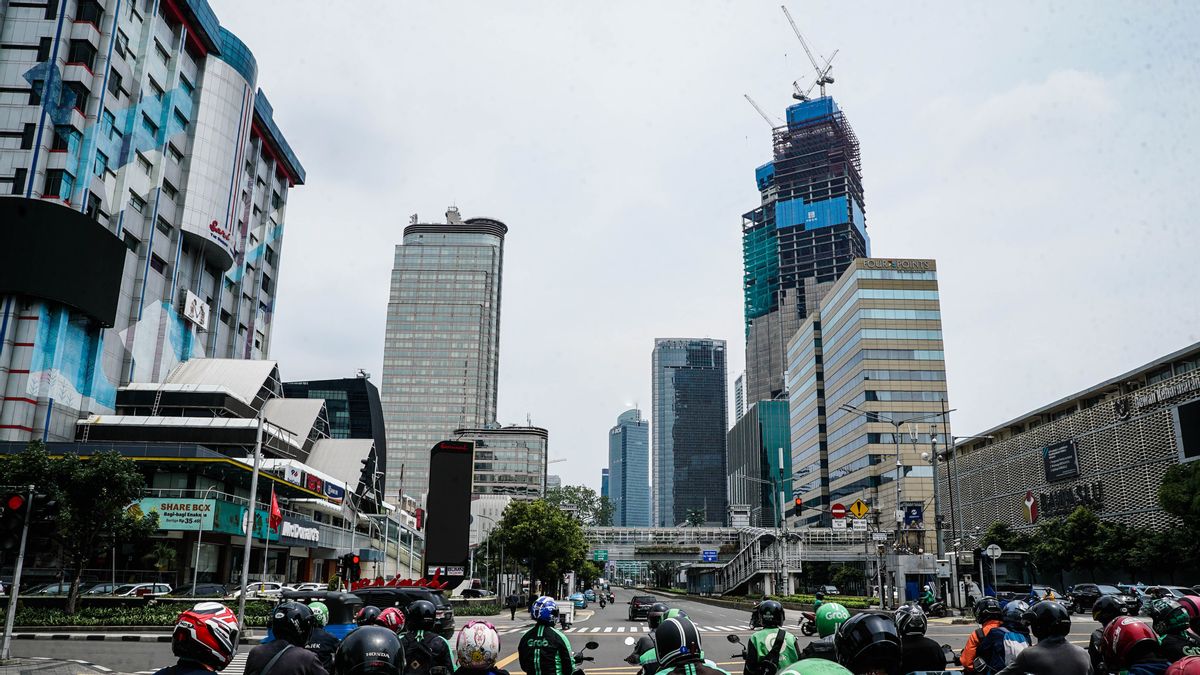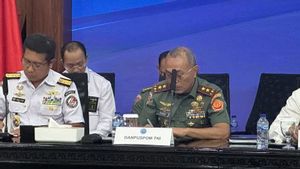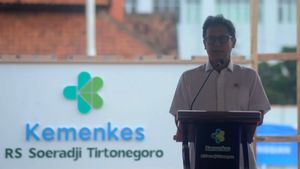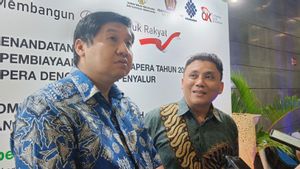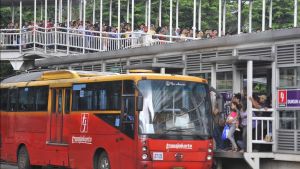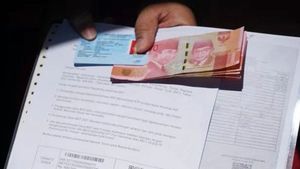JAKARTA - DKI Jakarta Governor Anies Baswedan finally issued a Governor Decree (Kepgub) Number 386/2020. This Kepgub contains regulations regarding social assistance recipients for the poor and vulnerable to poverty due to the COVID-19 pandemic.
In a copy of Kepgub 386/2020 received by VOI, most of the list of families receiving social assistance (bansos) along with demographic data. Unfortunately, not all of the list of recipients has been published, because the whole data is held by the DKI Provincial Government.
From the list displayed, there are several social assistance recipients who are Civil Servants (PNS). In addition, there are also recipients who work as active members of the TNI who live in Pademangan.
This list of beneficiaries was protested by the Chairman of Commission A DPRD DKI Mujiyono. According to him, PNS and TNI are not included in the poor and vulnerable groups of poor people. Because, they are still working and earning income until now.
"I appreciate Anies that there is a Decree for the recipient of this social assistance. But unfortunately there are active civil servants and TNI who are on the list of recipients of this social assistance. Is that okay, is it right on target? This must be evaluated again thoroughly," Mujiyono told reporters, Wednesday, April 22. .

Apart from Mujiyono, a member of the DKI DPRD from the Golkar faction, Judistira Hermawan, also received reports from the public that the social assistance (bansos) in the form of basic foodstuffs distributed by the DKI Provincial Government had not been on target.
Judistira gave an example of cases in her constituency (dapil). Based on the report of the chairman of RW 8, Jatinegara Village, Cakung, East Jakarta, there was an elderly mother who was categorized as poor but did not receive social assistance. Meanwhile, some residents who own a car are registered as recipients of social assistance.
"As soon as we went to the field, went down to the community, discussed with RT and RW, many of the social assistance sent by the Provincial Government did not hit the mark," said Judistira.
In this case, the member of Commission D DPRD DKI questioned the credibility of the data on aid recipients and the mechanism for sending aid owned by the DKI Provincial Government.
To VOI, Head of the Media Relations Section of the DKI Jakarta Communication, Informatics and Statistics Agency (Diskominfotik), Koharudin, did not answer in detail regarding the data collection process for the community receiving social assistance.
"Diskominfotik only acts as an aggregate data collector from the Regional Work Units (SKPD)," Kohar said in a short message.
For information, the DKI Provincial Government is implementing a social assistance program during the Large-Scale Social Restrictions (PSBB) period. This assistance is aimed at the poor and vulnerable to poverty due to the COVID-19 outbreak.
The details of the assistance provided were in the form of packages of staple food commodities, namely 5 kg 1 sack of rice, 2 cans of protein foodstuffs, 1 pack of cooking oil, 0.9 liter of 1 pack, 2 packs of biscuits, 2 pieces of cloth masks, and 2 sticks of soap. No cash assistance was provided.
One social assistance package that has been distributed and packaged by Perumda Pasar Jaya is worth IDR 149,500. However, the aid will be sent four times with a total aid of Rp. 600 thousand for one household.
The target recipients of social assistance who are currently being distributed are 1.2 million families living in DKI Jakarta. This social assistance is distributed every day, starting from April 9 to 24, 2020. Social assistance comes from the unexpected expenditure fund (BTT) of the 2020 DKI Jakarta Regional Budget.
As many as 1.2 million households receiving social assistance from the APBD are stage I recipients. Meanwhile, social assistance from the APBN through the Ministry of Social Affairs will be distributed to 1.25 million other households after the phase I distribution of social assistance is completed.
The English, Chinese, Japanese, Arabic, and French versions are automatically generated by the AI. So there may still be inaccuracies in translating, please always see Indonesian as our main language. (system supported by DigitalSiber.id)
